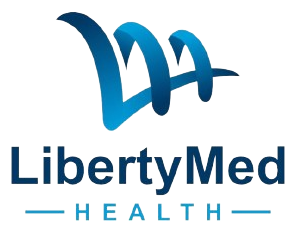
High cholesterol puts you at risk for developing cardiovascular disease, which can lead to life-threatening complications when untreated. At LibertyMed Health Group in Glendale, California, expert physicians Ara Shafrazian, MD, and Arthur Babakhanians, MD, provide advanced treatment options that can lower your cholesterol and prevent cardiovascular diseases from developing or worsening. Schedule your visit with LibertyMed Health Group by calling the office or booking online today.
request an appointmentHow does high cholesterol affect your health?
Cholesterol is a relatively complex substance. For starters, cholesterol isn’t all bad, and some cholesterol is essential to keep you healthy.
The cholesterol molecule cannot travel freely in your blood, so it pairs with lipoproteins to move around. The two types of lipoproteins are high-density lipoproteins (HDL) and low-density lipoproteins (LDL).
High levels of HDL, or “good” cholesterol, have a positive impact on your heart and blood vessels. However, high levels of LDL, or “bad” cholesterol, can cause blood clots, atherosclerosis, heart attacks, strokes, and peripheral artery disease.
The best way to prevent high cholesterol is to get a regular checkup so that the team at LibertyMed Health Group can run tests to check your cholesterol levels, assess your risks, and recommend a plan to keep you healthy.
What increases your risk of high cholesterol?
People who are overweight have a higher chance of developing cholesterol problems because carrying extra weight raises bad cholesterol and lowers good cholesterol.
Age is also a factor because levels of bad cholesterol tend to increase as people get older. However, women have less risk before menopause and a higher risk than men after menopause.
Genes play a role for some people, as high cholesterol and heart disease often run in families. For this reason, some children are also vulnerable.
The team at LibertyMed Health Group may recommend testing cholesterol in children whose parents or grandparents have cardiovascular disease or high cholesterol.
How is high cholesterol treated?
Like many chronic diseases, high cholesterol is best treated by being proactive. Your comprehensive treatment plan may include:
Diet modification
Your eating habits should focus on choosing healthy foods that can help lower cholesterol, like oats and beans. These foods are high in soluble fiber and can help lower LDL.
Weight loss
Losing weight can lower bad cholesterol, raise levels of good cholesterol, and help lower triglycerides — another type of unhealthy fat.
Medications
Lifestyle changes are the first line of treatment, but if your cholesterol doesn’t go down, there are reliable pharmaceutical options that can lower your cholesterol levels.
For your comprehensive assessment of high cholesterol, call LibertyMed Health Group or schedule your appointment online today.

